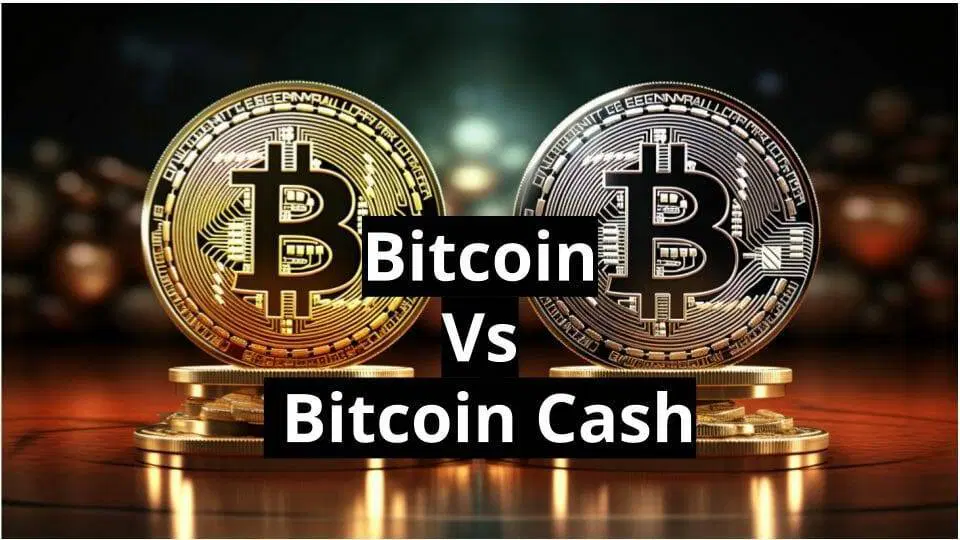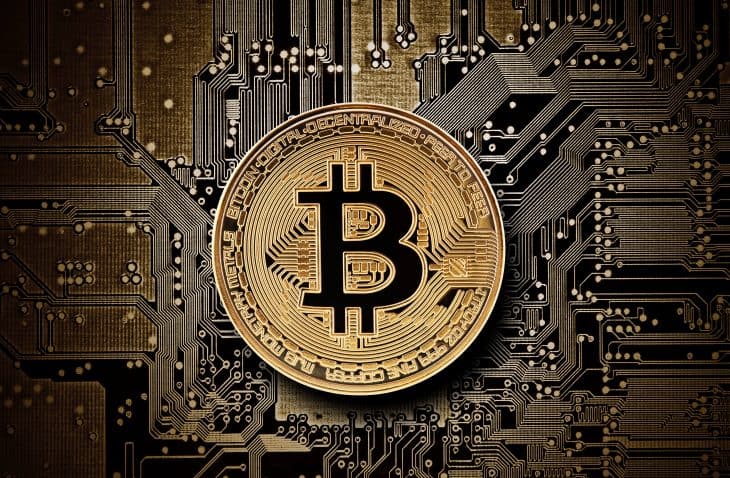
Bitcoin vs Bitcoin Cash: An Analysis
The first coin to garner widespread attention was Bitcoin. It started as a payment mechanism outside the purview of government agencies or other outside third parties. Created from a Bitcoin blockchain fork—that is, when users reject modification or reprogram a blockchain to run the way they wish it to—Bitcoin Cash is a cryptocurrency. 2017 saw Bitcoin Cash split in response to developers' differences on the path Bitcoin was headed.
BTC
Voting to include a feature called segregated witness (SegWit), mining pools and corporations accounting for around 80% to 90% of Bitcoin processing power decided in July 2017. By eliminating signature data from the block that has to be handled in every transaction and putting it in the coinbase transaction field, this change lowered the quantity of data required verification in each block less. This was not a minor technological change as signature data was projected to account for a considerable volume of data handled in every block.
While at the same time the Bitcoin code was adjusted to reflect this evolution, it was also changed to allow Bitcoin blocks to be more than just 1MB. Blocks acquired a modification known as block weight, capable of scaling to 4MB.
Cash Bitcoin
One different narrative is Bitcoin Cash. Beginning with Bitcoin miners and developers equally focused on the future of the coin and its capacity for efficient scaling, Bitcoin Cash was born. These people, though, were dubious about the separated witness element. They believed that SegWit did not follow the road map originally suggested by Satoshi Nakamoto, the unidentified entity who first put out the blockchain technology underlying cryptocurrencies, or solve the basic issue of scalability effectively.
Some miners and developers initiated a hard fork in August 2017, therefore generating Bitcoin Cash (BCH), a new blockchain and currency. With an 8 MB block size to speed the verification process, BCH differs from Bitcoin in one important way: it has own blockchain and specifications. Independent of the amount of miners supporting this block size, its changeable size level guarantees transaction verification speeds. In 2018 this restriction grew to 32 MB.
Thus, theoretically, Bitcoin Cash is faster than the Bitcoin network, hence wait times should be shorter and transaction processing costs might be lower. Moreover, it is thought that the Bitcoin Cash network can process many more transactions per second than the Bitcoin network. These assertions have not yet been verified, though, as the blockchain only averages more than 250,000 daily transactions (in contrast to Bitcoin, which regularly boasts far more).
Specific Considerations

Beyond the schism that produced Bitcoin Cash, the arguments on scalability, transaction processing, and blocks have persisted. For instance, the Bitcoin Cash network had its own hard split in November 2018, generating even another Bitcoin variant known as Bitcoin SV. Designed with changes to enable scalability and better transaction speeds, Bitcoin SV was developed in an attempt to remain loyal to the original vision for Bitcoin that Satoshi Nakamoto detailed in the Bitcoin white paper.
Since Bitcoin is still the most often used cryptocurrency worldwide and the biggest by market capitalization, BCH users might discover that liquidity and real-world usability are less than they would be for another cryptocurrency.
BCH has not enjoy near the popularity and volume of Bitcoin even with a larger block size used to cut transaction times and enhance usability. While BTC blocks have an average of around 1.6MB, BCH block sizes during its life average about 29.6KB.
Is Bitcoin Cash the same as Bitcoin?
2017 saw harsh forking of Bitcoin Cash from Bitcoin. Since then, both have changed their programming; hence, they are somewhat distinct. You may also read this: What is the technology behind blockchains?
The Drawback of Bitcoin Cash?
The only drawback of Bitcoin Cash is that, following its inception, it neglected to attract the necessary attention and engagement from the bitcoin community and investors. This is perhaps because Bitcoin built its supremacy with the first-mower advantage.
Is Bitcoin Cash Safe?

Daily trade volume of Bitcoin Cash is far less, its network is smaller, and its market cap is lower. Less trading adds liquidity risk; a smaller network is less secure; you might not be able to get in and out of positions fast. Comparatively to Bitcoin's more than 521,000, Bitcoin Cash has roughly 23,000 active addresses on May 12, 2024.
Conclusion
Originally released in 2017, Bitcoin Cash developed from the community's disagreement on how to resolve scalability and speed problems. Though Bitcoin Cash has a committed user base as well, Bitcoin remains the dominant cryptocurrency by price and market capitalization.
Investopedia's comments, viewpoints, and analyses are meant purely for informational use. See our warranty and responsibility disclaimer for further information. The author owns LTC and BTC as of the date this paper was prepared.
